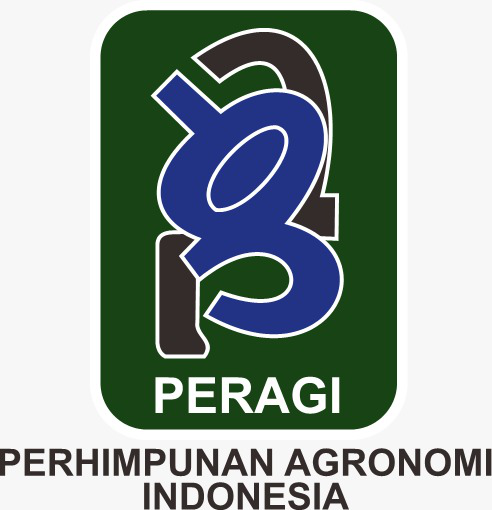Growth Response and Yield Of Lettuce (Lactuca Sativa L.) On Top Soil Alfisol Planting Media From Jamaimo Village, Mariat District, Sorong Regency To Bio Boost Fertilizer Treatment
Abstract
Lettuce has great potential to be developed. However, the limited condition of agricultural land in Indonesia requires alternative for efficient cultivation systems that can maintain the yield and growth of lettuce plants. Therefore, the cultivation carried out in this study was cultivation on narrow land with polybags using planting media top soil Alfisoll from Jamimo Village, Mariat District, Sorong Regency. Considering this, a study was conducted to determine the effect of best concentration of liquid Bioboost organic fertilizer in increasing the growth and yield of lettuce on Alfisol top soil planting media. This research was conducted in Klawuyuk Village, Sorong City, and analyzed soil samples at the Chemistry and Soil Fertility Laboratory, Department of Soil Science, Faculty of Agriculture, Hasanuddin University Makassar. This study used a Completely Randomized Design (CRD) with one treatment factor, namely the concentration of Bio-Boost liquid organic fertilizer which consisted of 4 treatment levels, namely 1) without Bio-Boost liquid organic fertilizer (control)); 2) 60 ml Bio- Boost liquid organic fertilizer + 1 liter of water 3) 80 ml Bio-Boost liquid organic fertilizer + 1 liter of water; 4)100 ml Bio-Boost liquid organic fertilizer + 1 liter of water. Observational data were analyzed statistically with analysis of variance at the 5% level. The dosage of Bio-Boost liquid organic fertilizer gave a very significant effect on the growth and yield of lettuce on Alfisol top soil planting media, where the concentration of B2 treatment (80 ml of Bio-Boost liquid organic fertilizer + 1 liter of water) resulted in variables growth and the highest yield, namely plant height 39.5 cm, several leaves 11, leaf area 91.3 cm, and wet weight 610, 4 gr.
Downloads
References
Badan Pusat Satistik. (2016). Komsumsi Buah dan Sayur Susenas Maret 2014.
Direktorat Jenderal Hortikultura, K. P. (2015). Statistik Produksi Holtikultura Tahun 2014. In STATISTIK PRODUKSI HORTIKULTURA TAHUN 2014. http://hortikultura.pertanian.go.id/wp-content/uploads/2016/02/Statistik-Produksi-2014.pdf
Driyunitha, & Pasapan, L. (2016). Pengaruh Pemberian Berbagai Konsentrasi Pupuk Cair Bioboost terhadap Pertumbuhan Tanaman Strawberry (Fragaria sp. AgroSaint, 7(1), 7–13. https://doi.org/https://doi.org/10.47178/agro.v7i1.539
Fajeriana M, N., & Wijaya, R. (2020). Analisis Kemampuan Lahan dan Kesuburan Tanah Pada Lahan Perencanaan Kebun Percobaan Universitas Muhammadiyah Sorong di Kelurahan Sawagumu Kecamatan Malaimsimsa. Median : Jurnal Ilmu Ilmu Eksakta, 12(3), 122–130. https://doi.org/10.33506/md.v12i3.1130
Fajeriana, N., Rasyid, B., & Zubair, H. (2013). Simulasi GreenCrop Tracker Untuk Serapan Hara Tanaman Padi Ladang dan Kedelai. Program Pascasarjana Universitas Hasanuddin, 13(3), 223–233. https://pasca.unhas.ac.id/jurnal/
Gardner, F. P., Pearce, R. B., & R.I., M. (2011). Fisologi Tanaman Budidaya (terjemahan). Universitas Indonesia Press: Jakarta.
Indriana, K. R., Dirmawan, R. H., & Komariah, A. (2021). Pengaruh Konsentrasi Pupuk Hayati Bioboost dan Air Kelapa Terhadap Pertumbuhan dan Hasil Tanaman Selada (Lactuca sativa L.) Varietas Grand Rapids. Agroscience, 11(1), 1–13.
Junaedi, J., Thamrin, S., & Suriyadi, S. (2019). Respon Pertumbuhan Bibit Kopi Robusta (Coffea canephora L.) Terhadap Pemberian Berbagai Konsentrasi Pupuk Cair Hayati. Jurnal Ilmiah Budidaya Dan Pengelolaan Tanaman Perkebunan AgroPlantae, 8(12), 8–13.
Karamina, H., & Fikrinda, W. (2016). Aplikasi Pupuk Organik Cair Pada Tanaman Kentang Varietas Granola di Dataran Medium. Kultivasi, 15(3), 154–158.
Lamawulo, K., Rehatta, H., & Nendissa, I. J. (2017). Pengaruh Media tanam dan Konsentrasi Pupuk Organik Cair Terhadap Pertumbuhan dan Produksi Tanaman Selada Merah (Lactuca sativa L.). Jurnal Budidaya Pertanian, 13(1), 53–63.
Manuhuttu, A. P., Rehatta, H., & Kailola, J. J. G. (2018). Pengaruh Konsentrasi Pupuk Hayati Bioboost Terhadap Peningkatan Produksi Tanaman Selada (Lactuca sativa. L). Agrologia, 3(1), 18–27. https://doi.org/10.30598/a.v3i1.256
Pathak, P., Sudi, R., Wani, S. P., & Sahrawat, K. L. (2013). Hydrological behavior of Alfisols and Vertisols in the semi-arid zone: Implications for soil and water management. Agricultural Water Management, 118, 12–21. https://doi.org/10.1016/j.agwat.2012.11.012
Pinatih, I. D. A. S. P., Kusmiyarti, T. B., & Susila, K. D. (2015). Evaluasi Status Kesuburan Tanah Pada Lahan Pertanian di Kecamatan Denpasar Selatan. Jurnal Agroekoteknologi Tropika (Journal of Tropical Agroecotechnology), 4(4), 282–292.
Sangadji, Z., Fajeriana, N., & Ali, A. (2021). The Effect of Various Treatment of Bio Boost Fertilizer On The Growth and Yield of Melon (Cucumis melo. L). Agrologia, 10(2). https://doi.org/10.30598/ajibt.v10i2.1428
Syarief, E. S. (1986). Kesuburan Tanah dan Pemupukan Tanah Pertanian. Pustaka Buana.
Wardhana, I., Hasbi, H., & Wijaya, I. (2016). Respons Pertumbuhan da Produksi Tanaman Selada (Lactuca sativa L.) Pada Pemberian Dosis Pupuk Kandang Kambing dan Interval Waktu Aplikasi Pupuk Cair Super Bionik. Agritrop : Jurnal Ilmu-Ilmu Pertanian (Journal of Agricultural Science), 14(2), 165–185. https://doi.org/10.32528/agr.v14i2.431
Wijaya, R., & Fajeriana, N. (2018). Hasil Dan Pertumbuhan Tanaman Selada (Lactuca sativa L.) Dalam Sistem Akuaponik Ikan Nila, Ikan Lele Dan Ikan Pelangi. Median, 10(3), 14–22.
Copyright (c) 2022 Nurul Fajeriana M., Muzna Ardin Abdul Gafur

This work is licensed under a Creative Commons Attribution 4.0 International License.
Authors who publish with Jurnal Agronomi Tanaman Tropika (JUATIKA) agree to the following terms:
Authors retain copyright and grant the Jurnal Agronomi Tanaman Tropika (JUATIKA) right of first publication with the work simultaneously licensed under a Creative Commons Attribution License (CC BY 4.0) that allows others to share (copy and redistribute the material in any medium or format) and adapt (remix, transform, and build upon the material for any purpose, even commercially) with an acknowledgment of the work's authorship and initial publication in Jurnal Agronomi Tanaman Tropika (JUATIKA).
Authors are able to enter into separate, additional contractual arrangements for the non-exclusive distribution of the journal's published version of the work (e.g., post it to an institutional repository or publish it in a book), with an acknowledgment of its initial publication in Jurnal Agronomi Tanaman Tropika (JUATIKA). Authors are permitted and encouraged to post their work online (e.g., in institutional repositories or on their website) prior to and during the submission process, as it can lead to productive exchanges, as well as earlier and greater citation of published work.







 More Information
More Information



